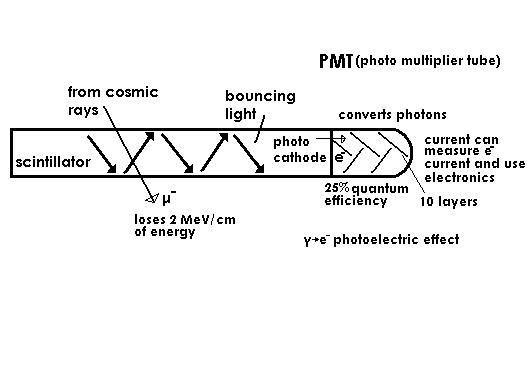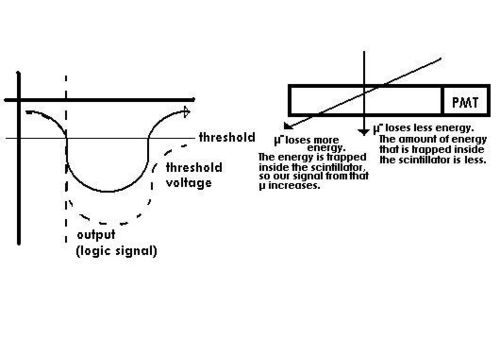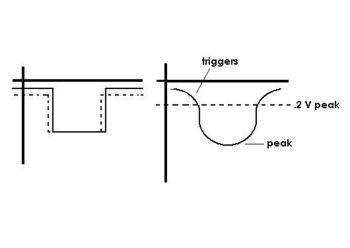Difference between revisions of "Notes from July 22nd, 2008 Meeting"
Jump to navigation
Jump to search
| Line 22: | Line 22: | ||
Why does the width matter? Suppose we made the width too small. Then, we'll get multiple pulses because it'll count all the places the value is greater than the threshold which isn't what we want. | Why does the width matter? Suppose we made the width too small. Then, we'll get multiple pulses because it'll count all the places the value is greater than the threshold which isn't what we want. | ||
We want our width to be the size of where the analog signal will hit the threshold both times. | We want our width to be the size of where the analog signal will hit the threshold both times. | ||
| + | |||
| + | |||
[http://wiki.iac.isu.edu/index.php/PhotoFission_with_Polarized_Photons_from_HRRL Go Back] | [http://wiki.iac.isu.edu/index.php/PhotoFission_with_Polarized_Photons_from_HRRL Go Back] | ||
Revision as of 06:24, 5 February 2009
Use Leo's book about PMT's and CMT's.
Leading Edge Discriminator
Correcting time walk method
- send pulse into ADC
- analog to digital converter
- measures size of pulse
- Constant Fraction Discriminator
- Finds peak
- For each pulse, sets threshold at .2 V of peak.
- Here, the threshold tells us when to fire. If the threshold is small, it'll trigger on noise.
We need to try to change the width. Why does the width matter? Suppose we made the width too small. Then, we'll get multiple pulses because it'll count all the places the value is greater than the threshold which isn't what we want. We want our width to be the size of where the analog signal will hit the threshold both times.


